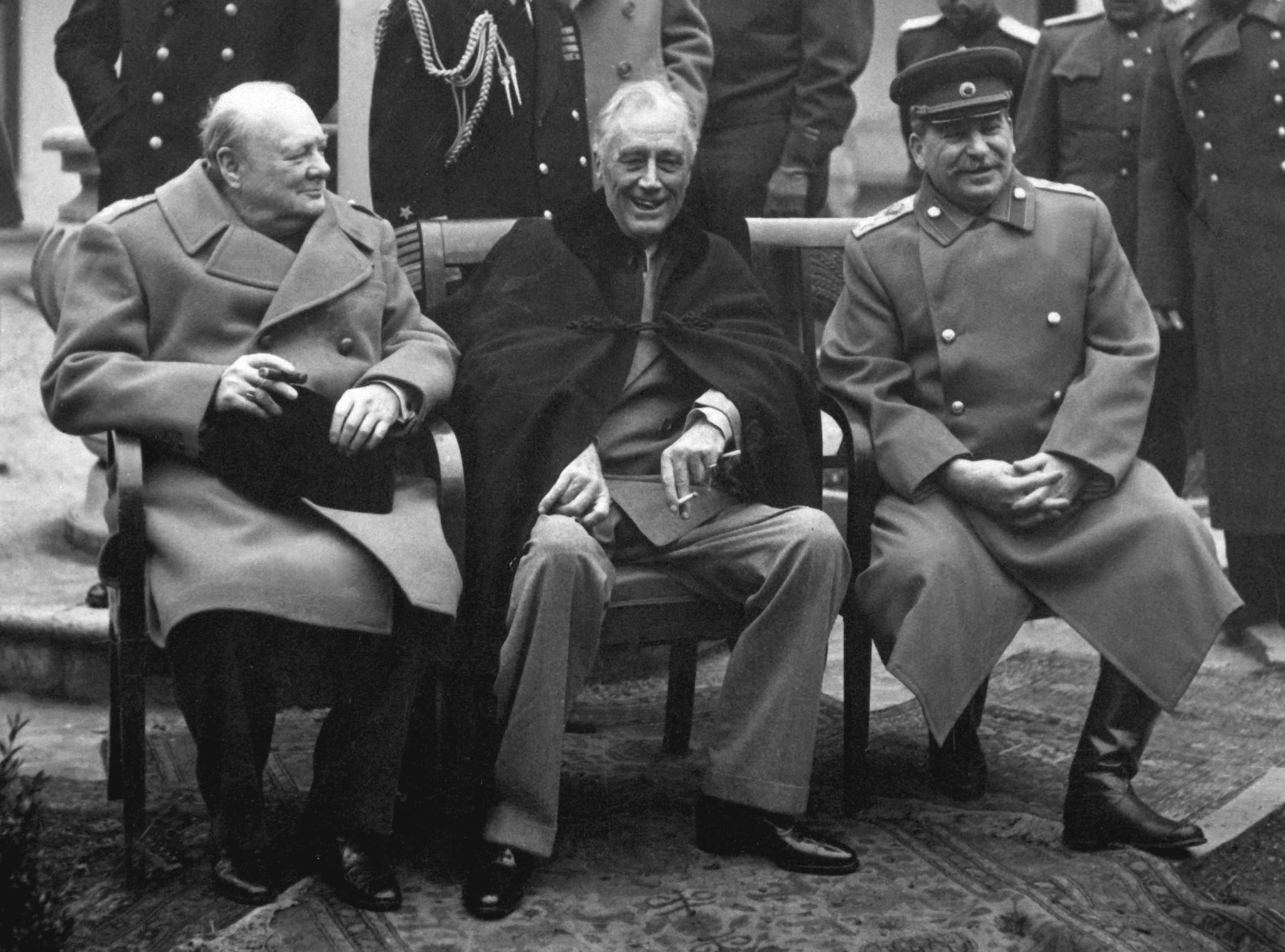Yalta Conference was one of the most important meetings of key Allied leaders during World War II (1939-1945). These leaders were President Franklin D. Roosevelt of the United States, Prime Minister Winston Churchill of Britain, and Premier Joseph Stalin of the Soviet Union. Their countries became known as the “Big Three.” The conference took place at Yalta, a famous Black Sea resort on the Crimean Peninsula, from Feb. 4 to 11, 1945. Through the years, decisions made there regarding divisions in Europe have stirred bitter debates.

When the meeting began, the Soviet Union held the strongest European military position. Soviet armies occupied much of Eastern Europe, and they were preparing to enter Berlin, Germany. The agenda at the Yalta Conference included the major problems in a postwar Europe.
Roosevelt, Churchill, and Stalin agreed on several points. These points were (1) to accept the structure of a world peacekeeping organization that was to become the United Nations; (2) to reestablish order in Europe and to help the defeated countries create democratic governments; (3) to divide Germany into four zones that would be occupied by Britain, the United States, the Soviet Union, and France; (4) to support the Soviet-backed government and hold free elections in Poland, and to extend the Soviet Union’s territory into Poland; and (5) to force Germany to give the Soviet Union equipment and other resources to make up for Soviet losses. The Soviet Union also agreed to enter the war against Japan in exchange for control of the Kuril Islands, the southern half of Sakhalin Island, and two strategic ports.
After the war, critics said Roosevelt had “sold out” Eastern Europe and had given too much to the Soviet Union. But most modern scholars believe the conference produced a traditional and balanced settlement. They argue that the Soviet Union held the superior military and political position in Eastern Europe and yet made the greatest concessions at the conference. Stalin failed to win demands for huge sums of money from Germany to pay for tremendous war losses and for a shift of the German-Polish border westward. Most scholars also believe the Soviet Union’s domination of Eastern Europe resulted from earlier and later events, not from decisions made at the Yalta Conference.
